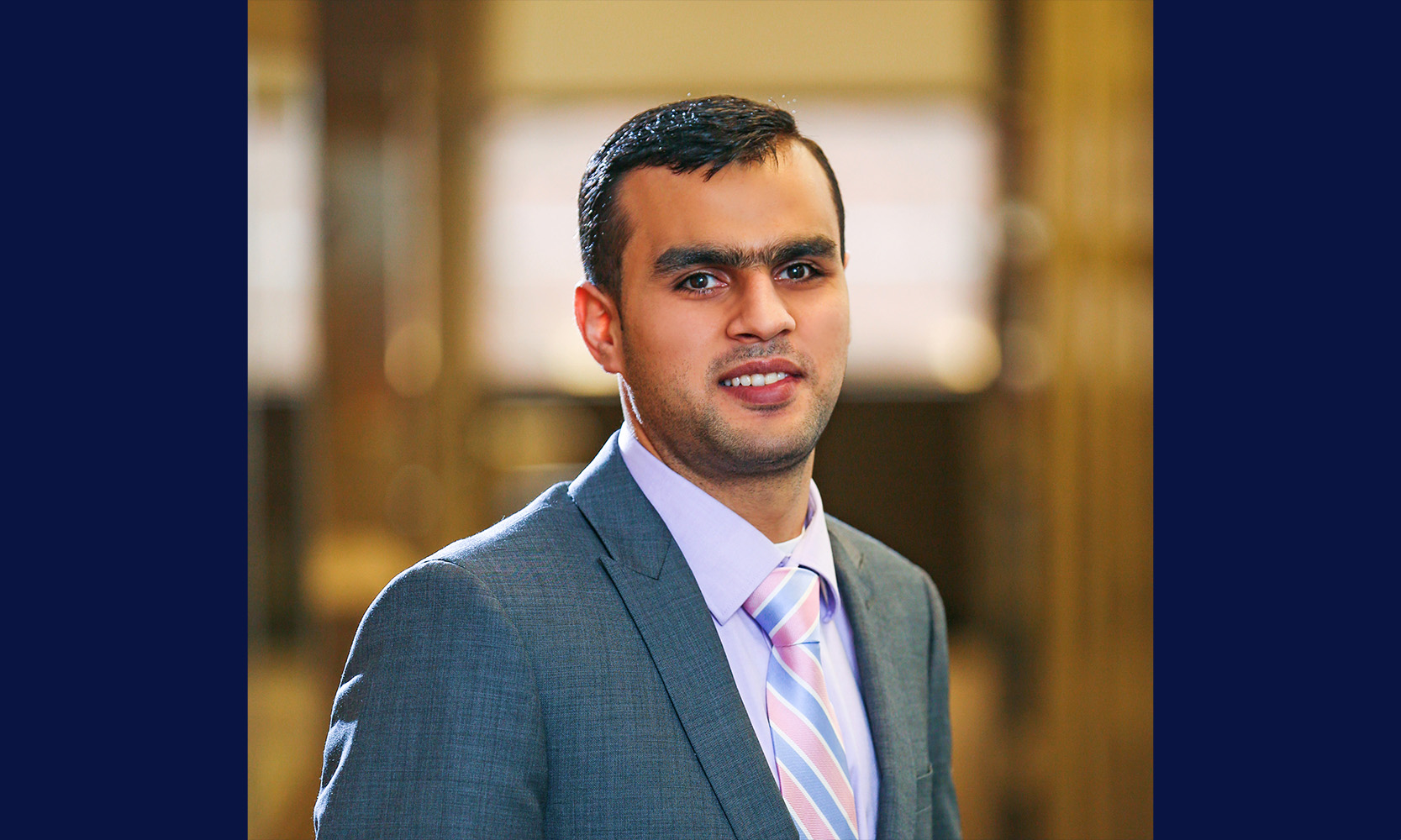
Khodr Farhat came to University of Michigan-Dearborn for a top-rated education. But the senior political science student’s time here will affect more than just his future—it will leave a lasting impact on the campus too.
Farhat, who is visually impaired, has led a recent effort for campus signage to be more inclusive by evaluating existing braille signs for accuracy and adding braille to affixed signs where it’s absent.
For his work, Farhat recently received a University of Michigan Certificate of Appreciation from the Neubacher Award Committee.
The honor is for individuals who remove barriers, promote acceptance and accessibility, and advocate for people with disabilities. The award, given Oct. 24, coincides with the university’s Investing in Abilities Week and National Disability Awareness Month.
“I am honored to be recognized. We all have challenges, and blindness is mine. With challenges, you gain knowledge that others may not have,” he said. “I feel it is my responsibility to take the knowledge I have because of my disability and respectfully speak up when there is a need. This is not only important for me, but also for others who may not feel comfortable doing so.”
Farhat said he began his campus advocate role just prior to starting his fall 2016 courses. Walking the grounds to memorize buildings and class locations, Farhat noticed a sign on the second floor of the CASL Building read “third floor” in braille.
“At first I was confused. Then I went up one more floor and it read, ‘second,’” he said. “That’s when I knew signs had gotten switched. Since I know braille, I decided to make it my mission to check all of the signs. Not just in the CASL Building, but across the entire campus.”
Going to the 33 buildings, Farhat noted any changes needing made. He then shared his list with the administration, who put his work into action.
“I have learned how responsive the university is. They started right away, which showed me how much they value an inclusive environment,” said Farhat, who emigrated from Lebanon to the U.S. because his parents wanted their son to have access to potential visual medical advancements and equal treatment. “Things do take time, but—through action—the university has shown me that there is a strong commitment to this cause.”
Buildings, like the Administration Building, have updated all affixed signs to include braille, Farhat said. He also said other suggestions, like putting caution tape up around work equipment like ladders and not having campus utility vehicles parked in walkways, have been noted and processes have improved. His suggestion to include a wheelchair lift in campus transportation was also implemented.
Farhat sees graduate school and a public servant job—a position where he can create change—in his future. But, for now, he is focused on spreading awareness and working with campus staff and faculty to make a difference.
“This campus has taught me that you may be one person, but you can do something to make the world a better place for others,” he said. “I love UM-Dearborn very much and will continue to work to make this campus community the best that it can be. I will reach for the stars that I cannot see.”



